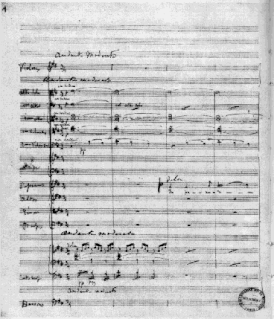Lux Perpetua (Latin, 'eternal light') may refer to:
Eternal(s) or The Eternal may refer to:
Lux is the SI derived unit of illuminance, which measures the perceived intensity of light. LUX is a gene involved in the circadian rhythms of Arabidopsis thaliana.

Eternal Rest or Requiem aeternam is a Western Christian prayer asking God:

Gabriel Fauré composed his Requiem in D minor, Op. 48, between 1887 and 1890. The choral-orchestral setting of the shortened Catholic Mass for the Dead in Latin is the best-known of his large works. Its focus is on eternal rest and consolation. Fauré's reasons for composing the work are unclear, but do not appear to have had anything to do with the death of his parents in the mid-1880s. He composed the work in the late 1880s and revised it in the 1890s, finishing it in 1900.
Perpetual Peace or Eternal Peace may refer to:
Limelight is a type of stage lighting used during the nineteenth century.
Perpetual, meaning "eternal", may refer to:
Lux Aeterna may refer to:
Catullus 5 is a passionate ode to Lesbia and one of the most famous poems by Catullus. The poem encourages lovers to scorn the snide comments of others, and to live only for each other, since life is brief and death brings a night of perpetual sleep. This poem has been translated and imitated many times.
Light Perpetual is a historical novel with fantasy elements, written by Andrzej Sapkowski, the last part of the Hussite Trilogy. Its events take place in Bohemia, Silesia and Poland, during the time of Hussite Wars. Its action takes place from 1429 until the Battle of Lipany.
Perpetua and Felicity were Christian martyrs.

Lux Aeterna is a piece for a 16-part mixed choir, written by György Ligeti in 1966. It is most famous for its use in Stanley Kubrick's 1968 film 2001: A Space Odyssey.
Fiat Lux, comes from third verse of the Book of Genesis.
Canticum Calamitatis Maritimae is an eight-part, a cappella classical choral composition by the Finnish composer Jaakko Mäntyjärvi. Completed in 1997, the piece was inspired by the MS Estonia disaster of 1994. It won third prize in the European composition competition for cathedral choirs in 1997. The piece is approximately 12 minutes in duration.
An eternal flame is a memorial consisting of a perpetually burning flame.
Eternal Light or eternal light may refer to

Lux Aurumque is a choral composition in one movement by Eric Whitacre. It is a Christmas piece based on a Latin poem of the same name, which translates as "Light, warm and heavy as pure gold, and the angels sing softly to the new born babe". In 2000, Whitacre set a short Latin text for mixed choir a cappella. In 2005, he wrote an arrangement for wind ensemble. The choral version became known through Whitacre's project Virtual Choir in 2009. The piece is also available for men's choir. A performance takes about four minutes.
Lux Mundi may refer to:
Et Lux is a classical and choral studio album by German composer Wolfgang Rihm, and played by an orchestra with the Huelgas Ensemble with the Minguet Quartett. This album was released in the label ECM New Series in March 2015.
Lux Perpetua is a Polish power metal band founded in 2003 by Paweł Zasadzki, Tomasz Sałaciński, and Emil Łazarski.